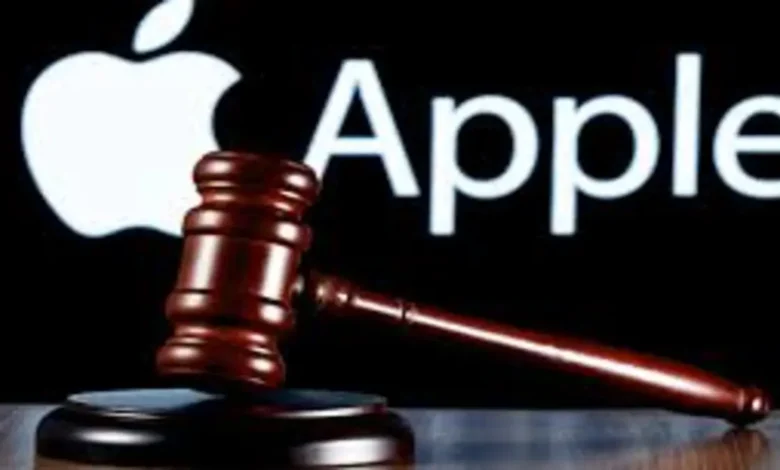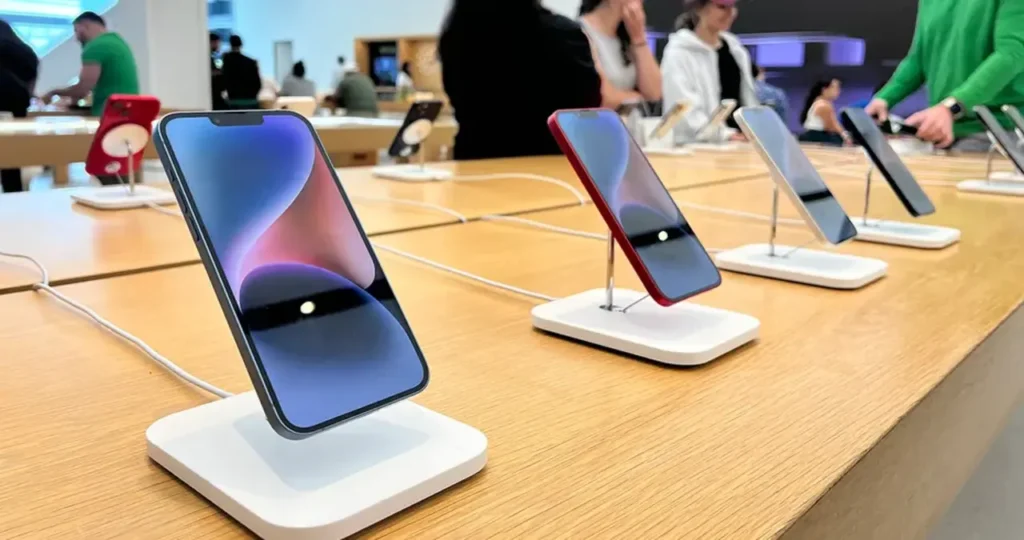Apple Lawsuit: A Detailed Look at the Legal Battles of a Tech Giant1

Apple Lawsuit Inc. is a company that has undoubtedly become synonymous with innovation, quality products, and luxury tech. However, its success and dominance in the market haven’t come without their fair share of legal challenges. Over the years, Apple has faced several lawsuits related to patents, antitrust issues, and even consumer rights. In this article, we will explore some of the most significant legal battles that Apple has been involved in, shedding light on how these lawsuits have impacted the company, its customers, and the tech industry as a whole.
Apple Lawsuit Overview: The Beginning of Legal Challenges
Apple’s legal battles have become a noteworthy part of its history. Though the company is often seen as an industry leader, its rise to the top has not been without controversy. Legal disputes have been a common theme, and many of them revolve around accusations of patent infringement, monopolistic practices, and deceptive advertising.
In the early years, Apple found itself embroiled in legal issues related to the protection of its intellectual property. As one of the most innovative companies in the world, Apple’s technology and design elements have been targeted by competitors and others seeking to benefit from Apple’s groundbreaking work. The company’s battle to defend its patents is a prime example of how important intellectual property rights are to the business, but also how these rights can be manipulated in the fast-moving tech industry.
Intellectual Property: Protecting Innovation or Stifling Competition?
One of the most common types of lawsuits Apple has faced is those related to intellectual property. Apple’s innovations have consistently pushed the boundaries of what technology can do, but in doing so, it has also found itself on the receiving end of lawsuits accusing it of patent infringement. These types of legal battles are often lengthy and complicated, as they involve detailed analysis of the technology in question and whether one party has used the other’s patented ideas without permission.
Apple’s most high-profile patent battles have often been with other tech giants. For instance, the Apple vs. Samsung patent war was one of the longest and most publicized patent lawsuits in history. The two companies fought fiercely over patents related to smartphones, with Apple accusing Samsung of copying its design and features. The legal proceedings were drawn out over several years, with billions of dollars in damages being awarded at different stages. This case highlights how important patent protection is in the tech industry, as companies like Apple rely heavily on their intellectual property to stay ahead of the competition.
However, some critics argue that Apple and other tech companies use patent lawsuits to stifle competition rather than protect genuine innovation. There is an ongoing debate about whether the patent system has become a tool for large corporations to block smaller companies from entering the market. Apple, for example, has been accused of using its patents aggressively to prevent competitors from offering similar products, which some see as an anti-competitive practice.
Antitrust Lawsuits: Allegations of Monopoly and Unfair Practices
Another major category of lawsuits that Apple has faced is antitrust cases, which allege that the company engages in monopolistic practices. These lawsuits claim that Apple uses its dominant position in the market to unfairly suppress competition, particularly in the app store and digital marketplace. As one of the largest tech companies in the world, Apple holds significant control over various platforms, including iOS and the App Store, which has drawn scrutiny from regulators and competitors alike.
A notable example of this type of lawsuit is the ongoing legal battle between Apple and Epic Games, the creator of Fortnite. Epic Games filed a lawsuit against Apple in 2020, claiming that the tech giant had violated antitrust laws by maintaining a monopoly on iOS app distribution and in-app purchases. The case revolves around Apple’s 30% commission on app sales and in-app transactions, which Epic Games argues is excessively high and unfair. The legal proceedings are still ongoing, but this case has already set a precedent for how tech companies are being scrutinized for potentially anti-competitive behavior.
The European Union has also investigated Apple for antitrust violations. In 2020, the European Commission launched a formal antitrust probe into Apple’s rules governing the distribution of music streaming apps through the App Store. The investigation focuses on allegations that Apple unfairly restricts rivals like Spotify by imposing high commissions on subscriptions and prohibiting alternative payment methods. If the European Commission finds Apple Lawsuit guilty of anti-competitive practices, the company could face substantial fines and be required to alter its business practices.
These antitrust cases raise important questions about the power that tech giants hold over digital marketplaces. Critics argue that companies like Apple have too much control over how apps and services are distributed, which could harm consumers by limiting choice and driving up prices. As regulators around the world continue to scrutinize Apple’s practices, the outcome of these cases could have far-reaching implications for the future of the tech industry.

Consumer Protection: Class Action Lawsuits and False Advertising Claims
In addition to patent and antitrust issues, Apple has also faced lawsuits related to consumer protection. Over the years, several class action lawsuits have been filed against Apple, accusing the company of misleading consumers or engaging in deceptive advertising practices. These types of lawsuits often center around issues like product defects, faulty advertising, or unfair business practices that harm consumers.
One of the most high-profile consumer protection cases Apple faced was the infamous “Batterygate” scandal. In 2017, it was revealed that Apple had intentionally slowed down older iPhones through software updates, a practice that Apple claimed was necessary to preserve battery life. However, many consumers felt that Apple had failed to properly disclose this information, and the company was accused of misleading its customers about the performance of their devices. The controversy led to a wave of class action lawsuits, with Apple eventually agreeing to settle for millions of dollars in compensation.
Apple has also faced accusations of false advertising in relation to its product claims. For example, the company has been sued for allegedly misrepresenting the capabilities of certain features in its products, such as the accuracy of health-tracking features in the Apple Watch. These cases often center around whether Apple’s advertising creates unrealistic expectations for consumers or fails to disclose important limitations of its products.
While Apple has defended its actions in many of these cases, the company has still been forced to settle some of the lawsuits and change certain business practices as a result. This highlights the importance of consumer protection laws and the need for companies to be transparent and honest with their customers. As consumers become more aware of their rights, we will likely see more legal challenges to companies like Apple in the future.
Apple’s Response to Lawsuits: Settlements and Strategies
Over the years, Apple has developed a clear strategy when it comes to handling lawsuits. As a company with deep pockets and a global reach, Apple has the resources to fight legal battles aggressively. However, Apple also understands that lengthy and public lawsuits can damage its reputation and brand image, so it often chooses to settle cases rather than risk protracted court battles.
In many instances, Apple has settled lawsuits without admitting guilt or wrongdoing. Settlements can be a way to resolve legal disputes quickly and avoid the uncertainty of a court decision. However, settlements often come with significant financial costs, as Apple has had to pay millions or even billions of dollars in compensation to resolve legal claims. For example, in the case of the aforementioned Batterygate scandal, Apple agreed to pay $500 million to settle a class action lawsuit filed by iPhone users who were affected by the battery throttling issue.
Apple’s legal team is also known for its aggressive defense strategies, particularly when it comes to patent infringement and antitrust cases. The company has a history of vigorously defending its intellectual property, and it has often been willing to take legal action against competitors it believes are infringing on its patents. In some cases, Apple has been successful in securing large settlements or even forcing competitors to stop selling certain products.
Despite its aggressive defense tactics, Apple has faced criticism for using its legal power to bully smaller competitors or stifle innovation. This criticism has become more pronounced in recent years as the tech industry has grown increasingly competitive, with smaller startups often being squeezed out of the market by the legal might of larger companies like Apple.
The Future of Apple’s Legal Battles: What Lies Ahead?
As Apple continues to dominate the tech industry, it is likely that the company will face even more legal challenges in the years to come. The growing focus on antitrust issues, privacy concerns, and intellectual property disputes means that Apple will need to navigate a complex and ever-changing legal landscape.
One area that is likely to attract legal scrutiny in the future is Apple’s App Store policies. As the company expands its services and increases its market share, regulators are becoming more focused on how Apple operates its digital marketplace. The ongoing antitrust cases against Apple are just the beginning, and new laws and regulations may be enacted to curb the power of big tech companies like Apple.
Apple’s approach to consumer rights and product transparency will also be closely monitored. As consumers become more aware of their rights and more vocal about their grievances, companies like Apple will face increasing pressure to ensure that their products live up to expectations. Additionally, as the tech industry becomes more focused on issues like data privacy and security, Apple may face lawsuits related to how it handles user data and safeguards its customers’ privacy.
Ultimately, the future of Apple’s legal battles will depend on how the company adapts to changing regulations, public scrutiny, and the evolving tech landscape. While Apple’s legal issues are far from over, the company’s ability to manage these challenges will play a critical role in determining its future success.
Conclusion: Apple’s Legal Journey
Apple’s journey through the legal landscape has been a tumultuous one, filled with numerous lawsuits, settlements, and battles for market dominance. From patent wars to consumer protection issues, Apple has faced a range of legal challenges that have forced the company to adapt and evolve. While Apple remains one of the most successful and influential companies in the world, its legal struggles serve as a reminder of the complexities of the tech industry and the importance of protecting intellectual property, ensuring fair competition, and upholding consumer rights.
As Apple continues to innovate and expand its reach, it will undoubtedly face more legal challenges. The outcome of these cases will shape the future of the tech industry and have lasting implications for how companies like Apple operate in an increasingly digital world.
This is a summary of the article. Please let me know if you want any modifications or further sections to be expanded.






